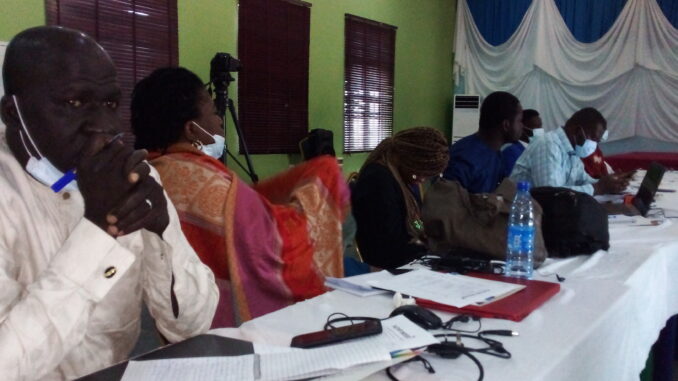
By Kemi Yesufu
As Nigeria seeks to improve health outcomes among women and reduce its maternal mortality rate, child spacing has been identified as one of the ways through which the country can achieve its aspirations.
Owing to this, journalists have been called on to promote safe family planning methods to the public at the 3-Day orientation workshop on the Advanced Family Planning programme for national level media partners of Pathfinder’s International Nigeria.
This is as the federal and state government has been tasked on ensuring the timely release of budgetary allocation for the provision of family planning services and products.
Speaking to Frontline News Online on the sidelines of the workshop held at Lafia, Nasarawa State, Programme Officer with Pathfinder’s International, Hauwa Usman, said the media playing its role of informing and educating its readers will help in improving the acceptance of family planning.
‘The media is an important stakeholder in moving an agenda forward. They help spotlight issues to the masses. They help carry information from government back to the masses. So by convening a 3-day workshop with national level media, we hope to increase their understanding of family planning advocacy and we hope to build a sustainable relationship with them so that they can carry the advocacy beyond the Advanced Family Planning Project by relaying the right information to beneficiaries of family planning and also the feedback of those people to government in order for government to invest more in family planning”, she said.
Speaking on data for family planning services in Nigeria, Usman said progress has been made, though a lot of work still needs to be done to significantly improve the demand and access to modern family planning services and goods.
She said: “Currently there are several family planning methods being used in the country. We have modern family planning methods, most recently the Nigerian government introduced the DMPA-SC aka Sayana Press (self-injection method). Unfortunately, there are still some misconceptions on family planning and these are tied to religion and cultures.
“Some believe it is a way of reducing population, some feel it may cause negative impact on their bodies, some think family planning may cause hormonal imbalance which will impact future births. But these are untrue.
“We want men, women and families and communities to understand the benefits of family planning. So the government is doing a lot to invest in this aspect of healthcare, but sometimes these investments aren’t enough and this reflects in the unmet needs for family planning. We hope that by spotlighting issues around financing, budgetary allocation and release of funds, we can attract more resources and increase access to family planning”.






Be the first to comment